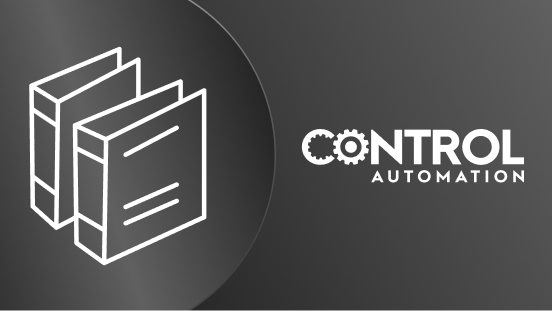
The digital multimeter (DMM) is quite possibly the most useful tool in the instrument technician’s…
Textbook

As previously defined, calibration refers to the checking and adjustment of an instrument so that its output…
Textbook

By definition, a source is a device delivering energy into a system, while a load is a device extracting…
Textbook

A fundamental principle in instrumentation system troubleshooting is that every instrument has at least one…
Textbook

Regardless of valve type, all stem-actuated control valves require some form of seal allowing motion of the…
Textbook

Circuit breakers used in residential, commercial, and light industrial service are self-tripping devices: they…
Textbook

Any conductor possesses a characteristic called inductance: the ability to store energy in the form of a…
Textbook

A pneumatic controller receives a process variable (PV) signal as a variable air pressure, compares that…
Textbook

Light has long been used as a long-range signaling medium. While communication by light through open air is…
Textbook

A completely different way of measuring liquid level in vessels is to bounce a traveling wave off the surface…
Textbook

Capacitors store energy in electric fields, proportional to the square of voltage. Inductors store energy in…
Textbook

The advent of “smart” field instruments containing microprocessors has been a great advance for…
Textbook

An important type of “accessory” relay, especially for legacy electromechanical protective relays,…
Textbook

Solids tend to expand when heated. The amount that a solid sample will expand with increased temperature…
Textbook

Volumes could be written about poor diagnostic technique. The following mistakes are not intended to comprise…
Textbook

As we have seen, the concept of differentiation is finding the rate-of-change of one variable compared to…
Textbook

The Law of Continuity for fluids states that the product of mass density (\(\rho\)), cross-sectional pipe area…
Textbook

Tube, like pipe, is a hollow structure designed to provide an enclosed pathway for fluids to flow. In the case…
Textbook

Constructing PID control systems using discrete components is a fairly simple method involving operational…
Textbook

Current is the name we give to the motion of electric charges from a point of high potential to a point of low…
Textbook

As we have seen, feedforward control is a way to improve the stability of a feedback control system in the…
Textbook

The reason why a pneumatic control valve’s stem position corresponds linearly to the amount of air…
Textbook

Instrument technicians should not have to concern themselves over the programming details internal to digital…
Textbook

In addition to directly performing logic functions, electromechanical relays may also be used as interposing…
Textbook

Thermodynamics is the study of heat, temperature, and their related effects in physical systems. As a subject,…
Textbook

A 4 to 20 mA current signal represents some signal along a 0 to 100 percent scale. Usually, this scale is…
Textbook

Feedback obtained from industrial users of FF reveal a common pattern: Fieldbus is a powerful and reliable…
Textbook

A unique form of technical diagram for describing the abstract functions comprising a control system (e.g. PID…
Textbook

Another category of control strategies involves the use of signal relays or function blocks with the ability…
Textbook

One of the simplest classes of temperature sensor is one where temperature effects a change in electrical…
Textbook

Every flow-measuring instrument exploits a physical principle to measure the flow rate of fluid stream.…
Textbook

A temperature switch is one detecting the temperature of some substance. Temperature switches often use…
Textbook

In November of 2007 a new computer virus was submitted to a virus scanning service. The purpose of this new…
Textbook

Process measurements are often of an analog nature: the temperature of a furnace, the rate of fluid flow…
Textbook

Tube, like pipe, is a hollow structure designed to provide an enclosed pathway for fluids to flow. In the case…
Textbook

A pneumatic controller receives a process variable (PV) signal as a variable air pressure, compares that…
Textbook

The term “grid” refers to the conductors and equipment interconnecting power sources to power…
Textbook

Abdelaziz, Ahmed (June 2014) Identified numerous typographical errors throughout the book, mostly repeated…
Textbook

At the next OSI Reference Model layer (layer 4) is a set of protocols specifying how reliable communication…
Textbook

A simple control system drawn in block diagram form looks like this: Information from the measuring device…
Textbook

The following animation shows how the “rotating” magnetic field of a three-phase AC induction…
Textbook

Layer 1 of the OSI Reference Model is where we define the “physical” elements of a digital data…
Textbook

A Safety Instrumented Function, or SIF, is one or more components designed to execute a specific…
Textbook

A positive displacement flowmeter is a cyclic mechanism built to pass a fixed volume of fluid through with…
Textbook
